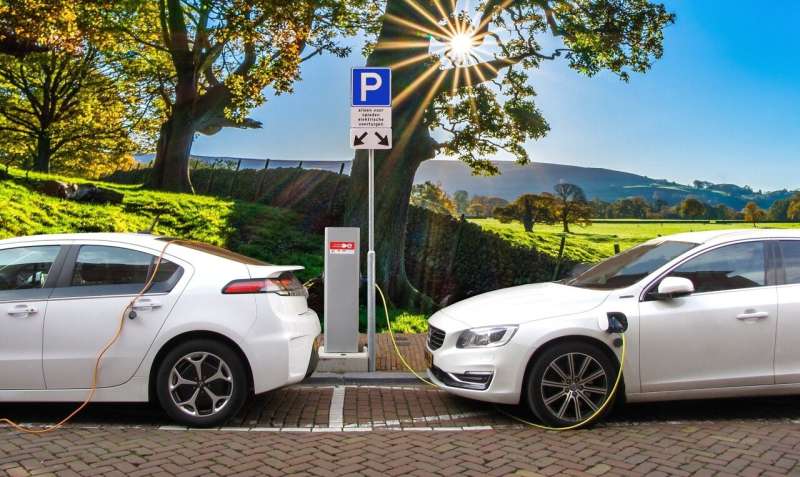
Hybrid cars are twice as vulnerable to supply chain issues as gas-powered models

The global computer chip shortage has hit car manufacturers especially hard, indicating the importance of supply chain resilience. Yet, for hybrid electric vehicles, it isn’t clear how their production could be impacted by fluctuating supplies and high prices. To get a grasp of these vulnerabilities compared to those for gas-powered models, researchers reporting in ACS’ Environmental Science & Technology conducted a thorough analysis, finding that hybrid models have twice the vulnerability to supply chain disruptions.
Supply chain weaknesses were brought to the forefront during the COVID-19 pandemic, especially for industries relying on electronics, as the flow of raw materials slowed or sometimes stopped. On top of that, shifting consumer values and tougher environmental regulations have resulted in more people buying hybrid vehicles. The batteries in these cars require rare metals that, depending on their supplies, can have volatile and unpredictable prices. But there are other scarce elements and materials that may be used in smaller amounts in hybrid models versus conventional gas vehicles, raising the question of how these vehicles really compare with regard to supply chain vulnerabilities. Although previous studies reported lists of the elements used in conventional cars’ parts, similar information on the parts used in hybrid vehicles is lacking. So, Randolph Kirchain and colleagues wanted to develop a comprehensive comparison of the elements and compounds that go into all the parts in gas-powered, self-charging hybrid and plug-in hybrid cars, calculating each of the three vehicles’ materials cost vulnerability.
The researchers collected information on the compounds in the more than 350,000 parts used to build seven vehicles from the same manufacturer with different levels of electrification, including four sedans and three sport utility vehicles (SUVs). Then, they calculated the amount of the 76 chemical elements present, as well as a few other materials, in each car type. To develop a monetary metric for vulnerability, the team considered the weight of each component, along with its average price and price volatility between 1998 and 2015. The results showed that self-charging hybrid and plug-in hybrid vehicles have twice the raw material cost risks, which equates to an increase of $1 billion for a fleet of a million sedans and SUVs, compared to conventional models. The largest contributors to the increase in cost risks were battery-related elements, such as cobalt, nickel, graphite and neodymium; however, changes to the exhaust and transmission systems in hybrid vehicles reduced the impact of palladium and aluminum, respectively. The researchers suggest that as manufacturers ramp up electric vehicle production to meet demand, they can reduce raw material cost risks with long-term supplier contracts, substitute some materials or recycle others.
Stellantis: 98% of models to be electric or hybrid by 2025
Karan Bhuwalka et al, Characterizing the Changes in Material Use due to Vehicle Electrification, Environmental Science & Technology (2021). DOI: 10.1021/acs.est.1c00970
Citation:
Hybrid cars are twice as vulnerable to supply chain issues as gas-powered models (2021, July 28)
retrieved 28 July 2021
from https://techxplore.com/news/2021-07-hybrid-cars-vulnerable-chain-issues.html
This document is subject to copyright. Apart from any fair dealing for the purpose of private study or research, no
part may be reproduced without the written permission. The content is provided for information purposes only.
Stay connected with us on social media platform for instant update click here to join our Twitter, & Facebook
We are now on Telegram. Click here to join our channel (@TechiUpdate) and stay updated with the latest Technology headlines.
For all the latest Technology News Click Here
For the latest news and updates, follow us on Google News.

